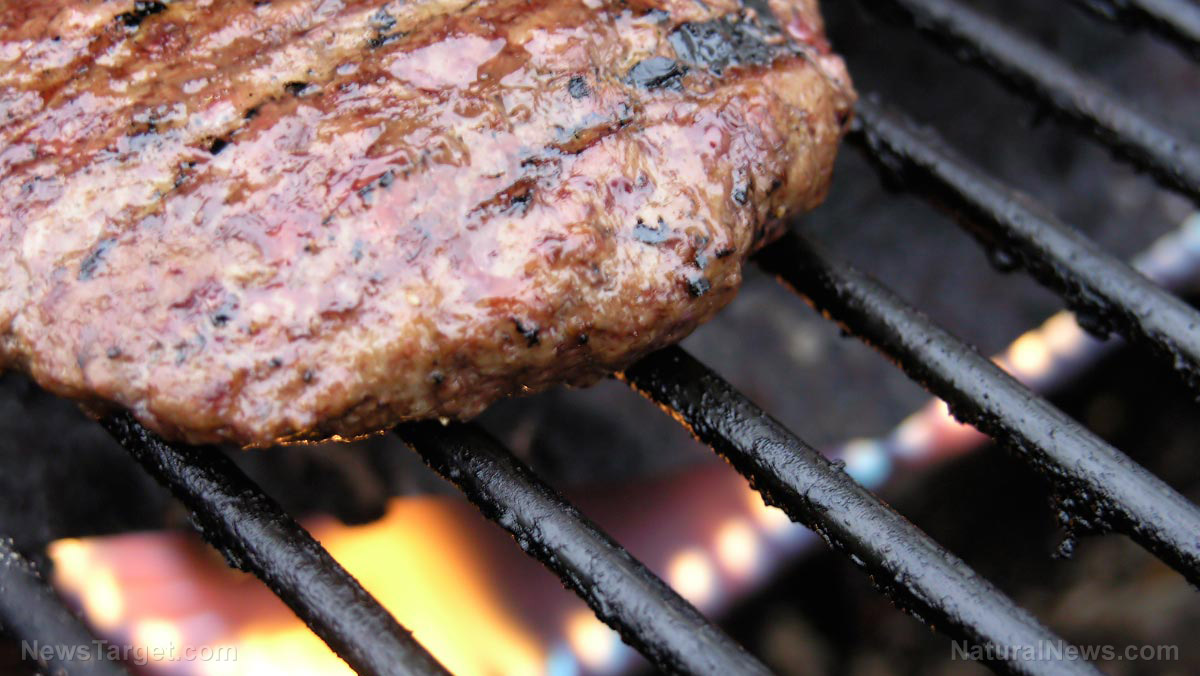
Advertisement
Deloitte Consulting LLP has some really bad news for the fake meat industry: nobody wants to eat the stuff.
Sales are not just flat for companies like Beyond Meat Inc. and Impossible Foods, they are declining – and at an increasing rate.
Two years ago, Beyond Meat made its global debut with what Bloomberg describes as a “blockbuster initial public offering.” At the time, it seemed like vegetarians and vegans everywhere might flock to the company’s products.
Since that time, however, the company has cratered, losing much of its market share. (Related: Check out our other recent coverage about the rise and fall of Beyond Meat.)
The fake meat peddlers tried but failed to capture people’s taste buds. It turns out that nobody wants to consume meat-like substances made from genetically engineered (GMO) ingredients.
Not only that, but fake meat is more expensive than ever due to rising inflation. Real meat is both cheaper and healthier, and even those with an aversion to meat are eating it for protein.
According to the latest data, sales of refrigerated meat alternatives, aka fake meat, at retailers are down 10.5 percent by volume for the 52 weeks ending on Sept. 4, 2022.
“Proteins that were cheaper on a price-per-pound basis did fare better,” says Jonna Parker, a fresh food specialist at the market research company Information Resources Inc. (IRI).
Many people rightly attribute the fake meat push with far-left activism
Parker says that “semi-vegetarian” shoppers who in the past may have considered purchasing Impossible burgers or Beyond Meat patties are now just going for the real thing.
“With inflation, consumers have become less willing to pay a premium for faux meat,” reports Bloomberg, adding that taste and health concerns are also playing a role.
Deloitte’s position is that fake meat companies have more of a perception problem than a desire problem. Fewer people are convinced that fake meat is healthier and better for the environment than real meat, despite efforts by the globalist greenies to convince people otherwise.
Bloomberg, of course, is one of those greenies. Writers Martine Paris and Deena Shanker made sure to throw a caveat into their story that despite public perception to the contrary, the “environmental credentials of plant-based products compared to their meatier counterparts are well established.”
Politics also plays a role as it is now abundantly apparent that the anti-meat crusade stems from the far-left notion that animals and animal products are “warming” the planet.
Somehow, eating fake meat patties made from GMO soybeans, which are chemically and environmentally intensive, is “healthier,” according to the left, than consuming meat made from animals that roam pastures like nature intended.
A case-in-point of this was seen when the Cracker Barrel food chain announced the addition of Impossible Foods “sausage” to its menu. The chain’s right-leaning customer base criticized the company, prompting it to drop the fake meat item.
“I tried eating those Beyond burgers several times and every time I felt sluggish, inflamed, and toxic,” wrote a Natural News reader about his or her personal experience with fake meat.
“There’s really no telling what this Beyond Meat product actually is,” added another. “I’m very suspicious of some of the meat-like properties.”
“Fake meat is like the Chinese knockoff of real meat,” said someone else. “If it looks the same, people buy it, only to find out very quickly the scam they have fallen for.”
Another said he and his wife tried to cook fake meat on the grill only to realize it was completely inedible. They ended up feeding it to their dogs while switching back to Ball Park Franks.
If you enjoyed reading this story, you will find more like it at Frankenfood.news.
Sources for this article include:
Advertisements







